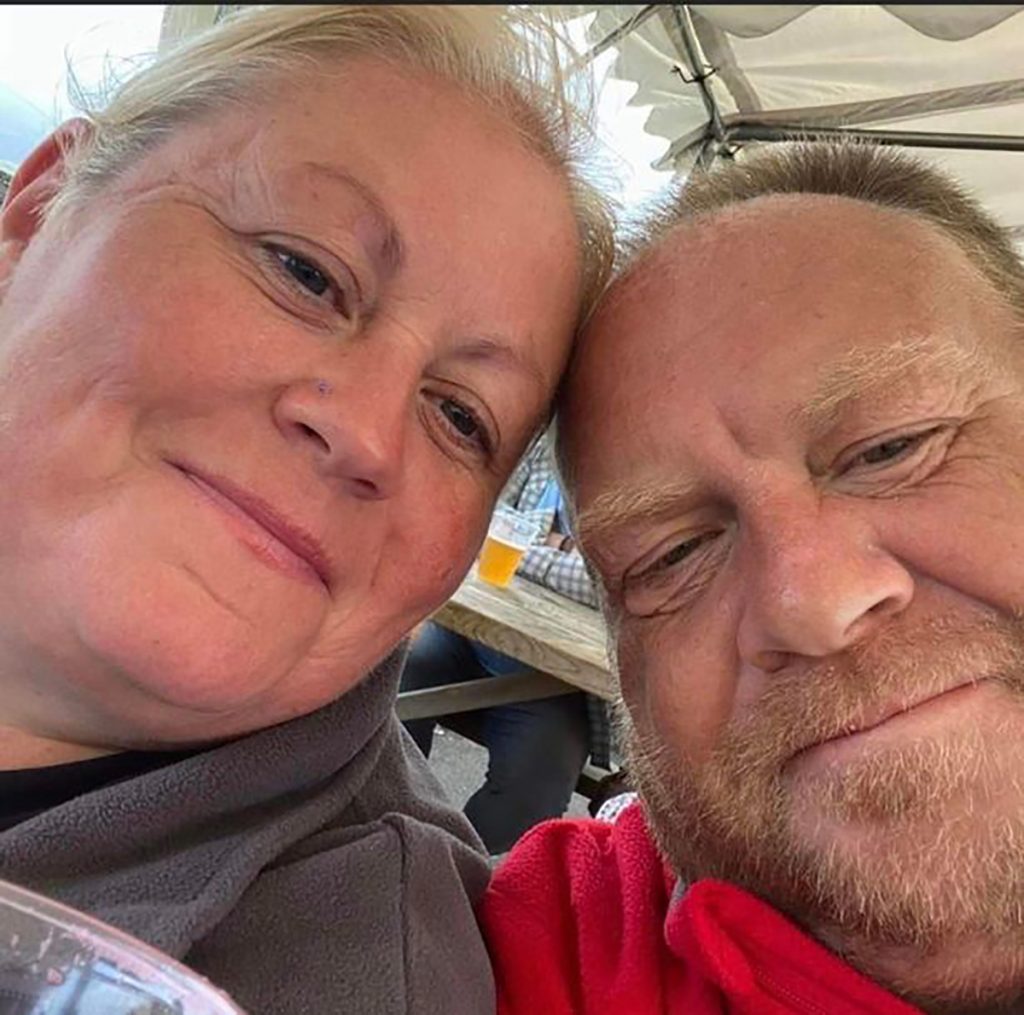Understanding Esophageal Cancer
- A father of four children has died from esophageal cancer after doctors first misdiagnosed his symptoms as acid reflux.
- Dr. Raja Flores tells SurvivorNet that esophageal cancer is often diagnosed in the later stages, meaning it has spread to distant parts of the body. This was the case for Craig Lawrenson.
- Esophageal cancer is often diagnosed so late because its symptoms often mimic that of other diseases including weight loss, difficulty swallowing and heartburn, also known as acid reflux.
"I'm still numb, it's not hit me yet. I'm still expecting him to come home from work or sometimes it still feels like he's in hospital and he'll be coming out of hospital in a few days," 48-year-old Wendy Hale tells the Liverpool Echo of her late husband, Craig Lawrenson.
Read MoreCraig's Misdiagnosis & Subsequent Cancer Battle
Last year, Lawrenson began experiencing some strange symptoms; he was having a hard time swallowing food and drinks. He decided to visit his doctor about his condition, but was told it was just acid reflux.
However, his symptoms only got worse, especially during a family vacation over the summer. Once he returned home, he was referred for more tests, which was when he and his wife learned the heartbreaking news that Lawrenson had esophageal cancer.

"They got us in a room and they told us it was a malignant tumor esophageal cancer just a couple of days before we'd come back from holiday," Hale says. "They left us in a room to give us a minute to digest it. We just looked at each other and burst into tears."
"(The doctor) came back in and said they took six biopsies but he knew what it was; it was definitely a malignant tumor."
While it is unknown what stage his cancer was when he received his esophageal cancer diagnosis on Aug. 16 of last year, Lawrenson was told that his cancer was incurable but treatable; it can be assumed his cancer was in its later stage. This can also be presumed because in November of last year, Lawrenson had another scan after experiencing pain in his left leg.
The scan revealed, according to Hale, that the esophageal cancer had spread to the bones in his hip. Lawrenson needed surgery, but after the operation, doctors delivered more heartbreaking news: a tumor was "rapidly" growing in his other hip.
Dr. Brendon Stiles talks about the symptoms of esophageal cancer.
It was around Christmas time when Lawrenson suffered yet another medical setback when he tested positive for Covid-19. The virus hits immunocompromised people, like cancer patients, harder than others, which resulted in Lawrenson being hospitalized with the virus on New Year's Eve.
Lawrenson fought off Covid, but Hale says they were told that the esophageal cancer had "taken over his whole body." It was on Jan. 6, when Lawrenson said he had had enough.
"(The antibiotics) were making him ill and his whole body was sore, it was black and blue," Hale says. "(The doctors) said they're not really doing much for you now and the only thing we can do for you now is keep you comfortable."
Hale is sharing her husband's story now in hopes that it will raise awareness for esophageal cancer and encourage people to get checked for this disease, as well as advocate for themselves in the medical world.

Understanding Esophageal Cancer
The esophagus is a tube that goes from the throat to the stomach and plays an important role in your digestive system. When cancerous cells form inside the tissues of this organ, you have esophageal cancer.
Overall, this cancer is rare, often difficult to diagnose and more common in men in the United States. Of more than 20,000 cases of esophageal cancer expected to be diagnosed in the U.S. this year, about 4,000 will be diagnosed in women, according to the American Cancer Society.
It is also important to note that some people confuse esophageal cancer with throat cancer, but they are, in fact, different. The cause of most esophageal cancers is unknown though some risk factors like tobacco use can increase the likelihood of developing this cancer while the human papillomavirus, a sexually transmitted virus also known as HPV, is known to cause most throat cancers.
Dr. Brendon Stiles talks about treatment options for patients with esophageal cancer.
Dr. Raja Flores, chairman of thoracic surgery at the Mount Sinai School of Medicine, tells SurvivorNet that esophageal cancer is often diagnosed in the later stages, meaning it has spread to distant parts of the body. This was the case for Craig Lawrenson.
"Of (all the cases diagnosed in the U.S. per year), only about 1,000 get surgery because the majority of them are identified at such a late stage," he says.
Esophageal cancer is often diagnosed so late because its symptoms often mimic that of other diseases including weight loss, difficulty swallowing and heartburn (also known as acid reflux), according to Dr. Brendon Stiles, chief of thoracic surgery at Montefiore Medical Center.
Things like acid reflux are generally not cause for any serious concern, but it is important to communicate any issues with your doctor. The more proactive you are about your health, the more likely you are to have an early diagnosis if something serious were to arise.
Contributing: Abby Seaberg
Learn more about SurvivorNet's rigorous medical review process.


